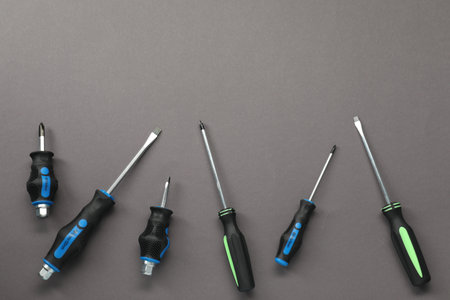1. Understanding Snap-On Dentures and Traditional Implants
When it comes to restoring your smile, you have several options. Two popular choices are Snap-On Dentures and Traditional Implants. Both solutions aim to replace missing teeth, but they work in different ways and offer distinct benefits. Let’s break down what each option is, how they function, and their key differences.
What Are Snap-On Dentures?
Snap-On Dentures, also known as implant-supported dentures, are a type of removable denture that attaches securely to dental implants placed in your jawbone. Unlike traditional dentures that rely on adhesives or suction to stay in place, these dentures “snap” onto the implants for a more stable fit.
How Do Snap-On Dentures Work?
- A dentist places 2 to 4 implants into your jawbone.
- The dentures have special attachments that snap onto these implants.
- You can remove them for cleaning but they stay secure while eating or speaking.
What Are Traditional Implants?
Traditional dental implants are a permanent solution for missing teeth. They involve surgically placing titanium posts into the jawbone, which act as artificial tooth roots. A crown, bridge, or full arch of teeth is then attached to these implants.
How Do Traditional Implants Work?
- A dentist places individual titanium implants into the jawbone.
- The bone fuses with the implant over time (a process called osseointegration).
- A permanent crown or bridge is placed on top for a natural look and feel.
Main Differences Between Snap-On Dentures and Traditional Implants
| Feature | Snap-On Dentures | Traditional Implants |
|---|---|---|
| Permanence | Removable | Permanently fixed |
| Bite Strength | Stronger than regular dentures but not as strong as implants | Mimics natural teeth strength |
| Surgical Invasiveness | Less invasive (requires fewer implants) | More invasive (each tooth requires an implant or a full-arch system) |
| Maintenance | Easier to clean since they can be removed | Cared for like natural teeth with brushing & flossing |
| Treatment Time | Shorter healing period | Takes longer due to bone integration process |
| Aesthetics & Feel | Naturally looking but may feel slightly bulkier | The most natural look and feel |
| Cost | Tends to be more affordable than full-mouth implants | A higher upfront cost due to multiple surgical procedures |
The choice between Snap-On Dentures and Traditional Implants depends on factors such as budget, lifestyle, and overall dental health. Understanding how each option works can help you make an informed decision about your smile restoration journey.
2. Pros and Cons of Snap-On Dentures
Snap-on dentures, also known as overdentures, offer a flexible alternative to traditional implants. They attach securely to dental implants but remain removable, providing a balance between stability and convenience. Lets take a closer look at the advantages and disadvantages of snap-on dentures.
Pros of Snap-On Dentures
Affordability
One of the biggest benefits of snap-on dentures is their cost-effectiveness compared to traditional implants. Since they require fewer implants, they typically come with a lower overall price.
Removability
Unlike fixed implants, snap-on dentures can be removed for cleaning, making oral hygiene more manageable for many patients.
Improved Stability Over Traditional Dentures
Compared to conventional dentures, snap-on options offer better retention and reduce slipping while speaking or eating.
Less Invasive Procedure
The placement process requires fewer implants, meaning a shorter surgery and recovery time than full-mouth implant solutions.
Cons of Snap-On Dentures
Regular Maintenance Required
The attachments on snap-on dentures wear down over time and may need periodic adjustments or replacements to maintain their fit.
Potential Discomfort
Some users experience irritation or soreness in the gums, especially when first adjusting to the fit of snap-on dentures.
Lifespan Considerations
While durable, snap-on dentures do not last as long as fixed implant solutions. Over time, the denture material may need replacement due to wear.
Bite Force Limitations
The stability of snap-on dentures is better than traditional dentures but not as strong as fixed implants, which may limit certain food choices.
Quick Comparison: Snap-On Dentures Pros & Cons
| Pros | Cons |
|---|---|
| More affordable than traditional implants | Requires regular maintenance and adjustments |
| Easier cleaning due to removability | Potential discomfort during adjustment period |
| Better stability than conventional dentures | Lifespan is shorter than fixed implant solutions |
| Simpler procedure with fewer implants needed | Bite force is weaker compared to permanent implants |
If youre looking for an option that balances affordability with improved function over traditional dentures, snap-on dentures might be worth considering. However, its important to weigh the long-term maintenance needs and potential comfort issues before making your decision.

3. Pros and Cons of Traditional Implants
Traditional dental implants are a popular and permanent solution for missing teeth. They offer excellent durability, a natural feel, and long-term benefits. However, they also come with some challenges, such as higher costs and a longer recovery period. Lets take a closer look at their advantages and drawbacks.
Benefits of Traditional Implants
✔ Long-Lasting Durability
Traditional implants are designed to last for decades, often a lifetime with proper care. Unlike dentures that may need replacement every few years, implants provide a more permanent solution.
✔ Natural Look and Feel
One of the biggest advantages of traditional implants is how closely they resemble natural teeth. They feel secure in your mouth, allowing you to eat, speak, and smile with confidence.
✔ Strong and Stable Bite
Because implants are anchored directly into the jawbone, they provide exceptional stability. You won’t have to worry about slipping or discomfort while eating tough or chewy foods.
✔ Helps Maintain Jawbone Health
When you lose teeth, your jawbone can begin to deteriorate over time. Implants stimulate bone growth, helping to preserve facial structure and prevent bone loss.
Potential Drawbacks of Traditional Implants
✖ Higher Cost
The biggest downside for many people is the cost. Traditional implants require a significant financial investment compared to other tooth replacement options.
✖ Lengthy Recovery Process
The implant process can take several months from start to finish. After the implant is placed, the jawbone needs time to heal before attaching the final crown.
✖ Requires Surgery
The procedure involves oral surgery, which means there’s a risk of complications like infection or discomfort during recovery.
✖ Not Suitable for Everyone
If you have insufficient jawbone density or certain medical conditions, you may not be an ideal candidate for traditional implants without additional procedures like bone grafting.
Quick Comparison: Traditional Implants at a Glance
| Feature | Traditional Implants |
|---|---|
| Durability | Can last a lifetime with proper care |
| Aesthetic Appeal | Mimics natural teeth perfectly |
| Bite Strength | Very strong and stable for chewing |
| Surgical Procedure | Requires oral surgery and healing time |
| Total Cost | Higher upfront cost compared to other options |
| Suitability | Might require bone grafting for some patients |
4. Factors to Consider When Choosing Between the Two
Deciding between snap-on dentures and traditional implants is a big decision that depends on several key factors. Your budget, lifestyle, dental health, and long-term goals all play a role in determining which option is best for you.
Budget
One of the most significant differences between snap-on dentures and traditional implants is the cost. Traditional implants tend to be more expensive because they require multiple procedures and high-quality materials. On the other hand, snap-on dentures are generally more affordable since they use fewer implants and require less invasive surgery.
| Factor | Snap-On Dentures | Traditional Implants |
|---|---|---|
| Initial Cost | Lower | Higher |
| Long-Term Maintenance Cost | Moderate (may need adjustments or replacements) | Lower (durable and long-lasting) |
| Coverall Value | A budget-friendly solution with some ongoing costs | A high-investment but permanent solution |
Lifestyle Considerations
Your daily habits and routine also play a role in your choice. Snap-on dentures offer flexibility since they can be removed for cleaning, but they may not feel as stable as traditional implants. If you’re looking for the closest experience to natural teeth, traditional implants provide a secure and permanent solution.
- If you prefer convenience: Snap-on dentures are easy to remove and clean.
- If you want maximum stability: Traditional implants function like real teeth without needing removal.
- If you travel often: Snap-on dentures may require occasional adjustments, while implants require minimal maintenance once healed.
Your Dental Health
The condition of your jawbone and gums is crucial when deciding between these options. Traditional implants require strong bone structure to support them, whereas snap-on dentures can work even if you have some bone loss. If bone grafting is needed for implants, it could add time and cost to the process.
Bite Strength & Comfort
If you want a stronger bite force for eating tough foods like steak or nuts, traditional implants provide better chewing power. Snap-on dentures offer decent functionality but may not be as strong as full implants.
Your Long-Term Goals
If youre looking for a lifelong solution with minimal upkeep, traditional implants are the better choice. However, if youre seeking an option that balances affordability with effectiveness, snap-on dentures might be a good compromise.
Aesthetic & Confidence Factor
Both options improve your smile, but traditional implants look and feel more like natural teeth. If confidence in appearance matters most, investing in full implants may be worthwhile.
The right choice depends on what works best for your needs. By evaluating your budget, lifestyle, dental health, and long-term goals, you can make an informed decision about whether snap-on dentures or traditional implants are right for you.
5. Which Option Is Right for You?
Deciding between snap-on dentures and traditional implants depends on your lifestyle, budget, and oral health needs. Both options offer unique benefits, but understanding their differences can help you make an informed choice.
Key Factors to Consider
- Budget: Snap-on dentures are typically more affordable upfront, while traditional implants require a higher initial investment but may offer long-term value.
- Durability: Traditional implants are more permanent and durable compared to snap-on dentures, which may require periodic adjustments or replacements.
- Comfort & Stability: Implants provide a fixed solution that feels more like natural teeth, whereas snap-on dentures may feel slightly less stable.
- Oral Health Requirements: Traditional implants need sufficient bone density, while snap-on dentures can be a great option for those with some bone loss.
- Maintenance & Care: Snap-on dentures must be removed for cleaning, while traditional implants can be cared for like natural teeth.
Comparison Table
| Feature | Snap-On Dentures | Traditional Implants |
|---|---|---|
| Cost | $ – More affordable | $$$ – Higher initial investment |
| Lifespan | Around 5-10 years (may need replacement) | Permanent with proper care |
| Bite Strength | Slightly less than natural teeth | Nears natural teeth strength |
| Surgical Procedure | Easier procedure with fewer implants required | Surgical placement of individual implants |
| Candidacy Requirements | Suitable for those with some bone loss | Typically requires good bone density |
| Main Advantage | A removable, cost-effective alternative with decent stability | A long-lasting, natural-feeling tooth replacement solution |
Expert Recommendations Based on Your Needs
If You Want a Budget-Friendly Solution:
If affordability is a major concern, snap-on dentures are a great option. They provide a secure fit without the higher cost of multiple implants.
If You Prefer a Long-Term Permanent Fix:
If youre looking for the most natural and durable option, traditional implants are worth the investment. They function just like real teeth and require minimal maintenance.
If You Have Bone Loss or Other Oral Health Concerns:
If you’ve experienced bone loss or cannot undergo extensive surgery, snap-on dentures might be the better choice as they require fewer implants.
The Bottom Line: Making the Best Choice for You
Your decision should be based on your budget, comfort preference, and long-term goals. Consulting with a dental specialist can help you determine which solution best suits your needs.


